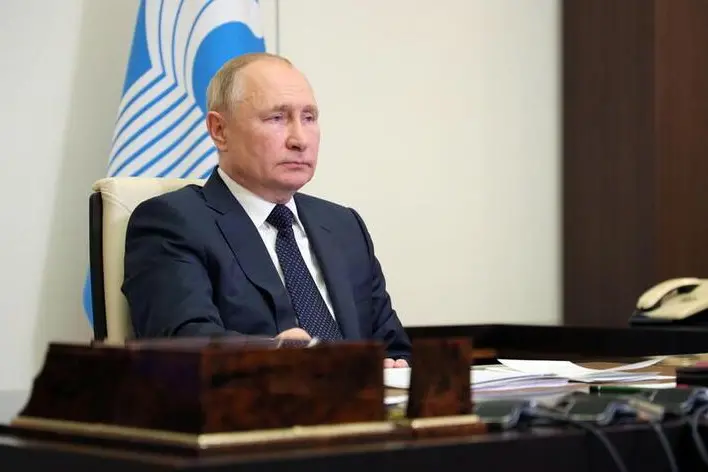PHOTO
A tug-of-war is in full swing between Russia and Ukraine on the one hand and the US and Russia on the other.
Russia has massed up to 100,000 troops along the Ukrainian border, a large concentration that cannot easily be explained as a routine military movement. Russia may be doing this to dissuade NATO from putting pressure on it, or it may be planning a surprise attack changing several paradigms in Ukraine, or both.
The conflict has several dimensions, but two are particularly important.
One is NATO’s unwavering commitment to make Ukraine a member of the alliance. After having raised this issue on countless occasions, it may not be easy for NATO to step back now. If Ukraine joined NATO, it wouldconsiderably change the power balance in the Black Sea, which is the only sea in the world whose international status had been meticulously tied to strict rules by the Montreux Convention of 1936.
The convention was negotiated on the assumption that the Soviet navy would remain indefinitely the largest in the Black Sea, and refers to “the strongest fleet in that sea at the date of the signature” of the convention. It is clear that the country referred to is the now defunct Soviet Union. Without opening a debate on whether Russia should be considered the successor of the entire Soviet Union, it is valid to ask how the criterion of the “strongest fleet” should be interpreted, and whether military installations in Crimea should be considered Russian or Ukrainian. If Ukraine joined NATO, the balance of naval force in the Black Sea would tilt toward the alliance.
The second dimension of the current tension is the situation in the self-declared “people’s republics” of Donetsk and Luhansk, which are inhabited predominantly by Russian-speaking Ukrainians. But the Ukrainian crisis has far reaching implications that go beyond Donetsk and Luhansk. This question was raised in the phone conversation last week between Joe Biden and Vladimir Putin.
The White House and the Kremlin emphasized different issues from those talks. Washington fears Russianmilitary activities may be a prelude to an invasion, so Biden restated his support for Ukraine’s sovereignty and territorial integrity, and said that if Russia invaded Ukraine, the US would respond with devastating economic measures. Russia, meanwhile, tried to secure a firm guarantee that Ukraine would be excluded frommembership of NATO.
NATO and Russia each accuse each other of being provocative, but the truth may be somewhere in the middle and tough negotiations may be needed to meet in the middle ground.
One of the NATO’s success in its seven decades of existence is that its resolve has never been tested on the battlefield, so we do not know if its prestige would be bruised if it engaged in a full-blown military confrontation with Russia. It is worth remembering that the Soviet Union was dismembered partly as a result of NATO’s efforts in the Mutual and Balanced Force Reductions meetings without firing a shot.
Russia’s invasion and annexation of Crimea in 2014 was opposed by many countries, although none took military action to halt it. But if the same scenario were repeated in Donetsk and Luhansk, the reaction of the international community might be different. It might again not go as far as military action, but more countries could join economic sanctions against Russia. On the other hand, the UN Security Council cannot impose sanctions on Russia because of Moscow’s veto, so they would not be binding for the international community, and many countries would be reluctant to resort to sanctions because they would not wish to provoke Russia unnecessarily.
Russia’s ultimate aim is not clear, but Ukraine has every reason to suspect the worst. NATO, in turn, complains of the unpredictability of what Russia may do in Ukraine. What the Soviet Union did in 1956 in Hungary, in Czechoslovakia in 1968 and more recently what the Russian Federation did in 2008 in two autonomous regions of Georgia–South Ossetia and Abkhazia and lastly in Crimea are not forgotten. So there is no shortage of examples of Russia’s resorting to faits accomplis, and it has the means to do so again. The question,therefore, is whether a full conflagration can be avoided before the worst comes to the worst.
• Yasar Yakis is a former foreign minister of Turkey and founding member of the ruling AK Party.
Twitter: @yakis_yasar
Copyright: Arab News © 2021 All rights reserved. Provided by SyndiGate Media Inc. (Syndigate.info).





















